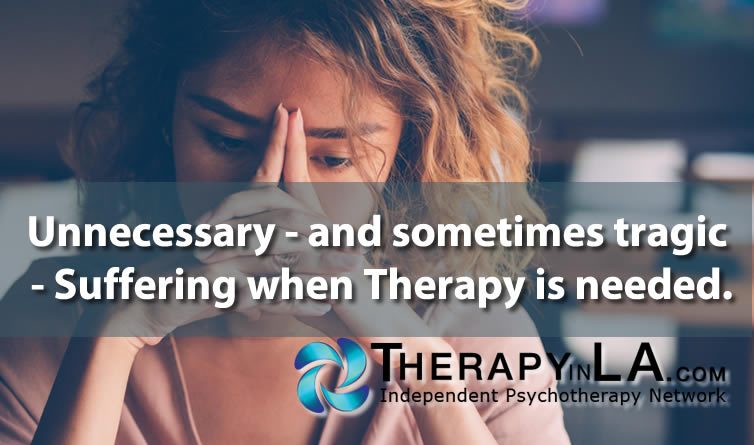UNNECESSARY – and SOMETIMES TRAGIC – SUFFERING WHEN THERAPY IS NEEDED
UNNECESSARY – and SOMETIMES TRAGIC – SUFFERING WHEN THERAPY IS NEEDED
A recent class action lawsuit featured two instances of suffering that proved to be unnecessary, and in one instance tragic (link: Ken Pope: 8 Principles of Accepted Standards of Care). To mental health care professionals, this is an all-too-familiar scenario.
Natasha Wit, at 17 years old, was in a residential treatment facility in California with a severe eating disorder that included serious medical complications as well, along with depression, anxiety, OCD and social isolation. Four days after being admitted, her insurance company – United Behavioral Health – denied coverage: “treatment does not meet the medical necessity criteria for residential mental health treatment….” The insurance company reviewer suggested a less “restrictive level of care” (i.e. less costly) would be safe. Many other such individuals end up with less effective care, if any care at all, although Ms. Wit’s family was able to pay for the two months of treatment needed.
Max Tillit, a heroin addict at 21 years old, was denied treatment after his first three weeks in a residential treatment facility, even after the facility filed an urgent appeal to extend treatment further. He was discharged and died 10 weeks later from an overdose. UBH was also the insurer in this case.
The Wits initiated a class action lawsuit to recover the costs of their daughter’s treatment. Other plaintiffs, including Max’s mother, Linda Tillit, joined the lawsuit. Their claim was based on UBH violating their “fiduciary obligations”, and that the requested benefits were due under federal law (ERISA: Federal Employee Retirement Income Security Act). The primary basis for this claim is “parity”: mental health coverage should be equivalent to that provided for medical care. While Congress did pass parity legislation in 1996 and again in 2008, this did not cover the tens of millions of workers covered under ERISA. The Affordable Care Act (known as “Obama Care”) improved coverage further by requiring coverage for mental and substance use issues, but true parity is still not in place.
For years, therapists and treatment programs have faced a restrictive review process in which “medical necessity” is defined by the insurance company, motivated more by profits than by commitments to quality patient care. The usual pressure from a treatment reviewer was to limit treatment as much as possible by addressing only acute, immediate symptoms, encouraging the use of medications immediately, referring patients to community support services, limiting the number and frequency of sessions, and ending therapy ASAP.
The next blog will outline the court decision and new guidelines for insurance coverage to establish more genuine parity for mental health coverage.
Alan M. Solomon, Ph.D. is a clinical psychologist in private practice in Torrance, CA. A member of the Independent Psychotherapy Network, he can be reached at 310 539-2772 or dralanms@gmail.com
Copyright 2019 by Alan M. Solomon, Ph.D.

